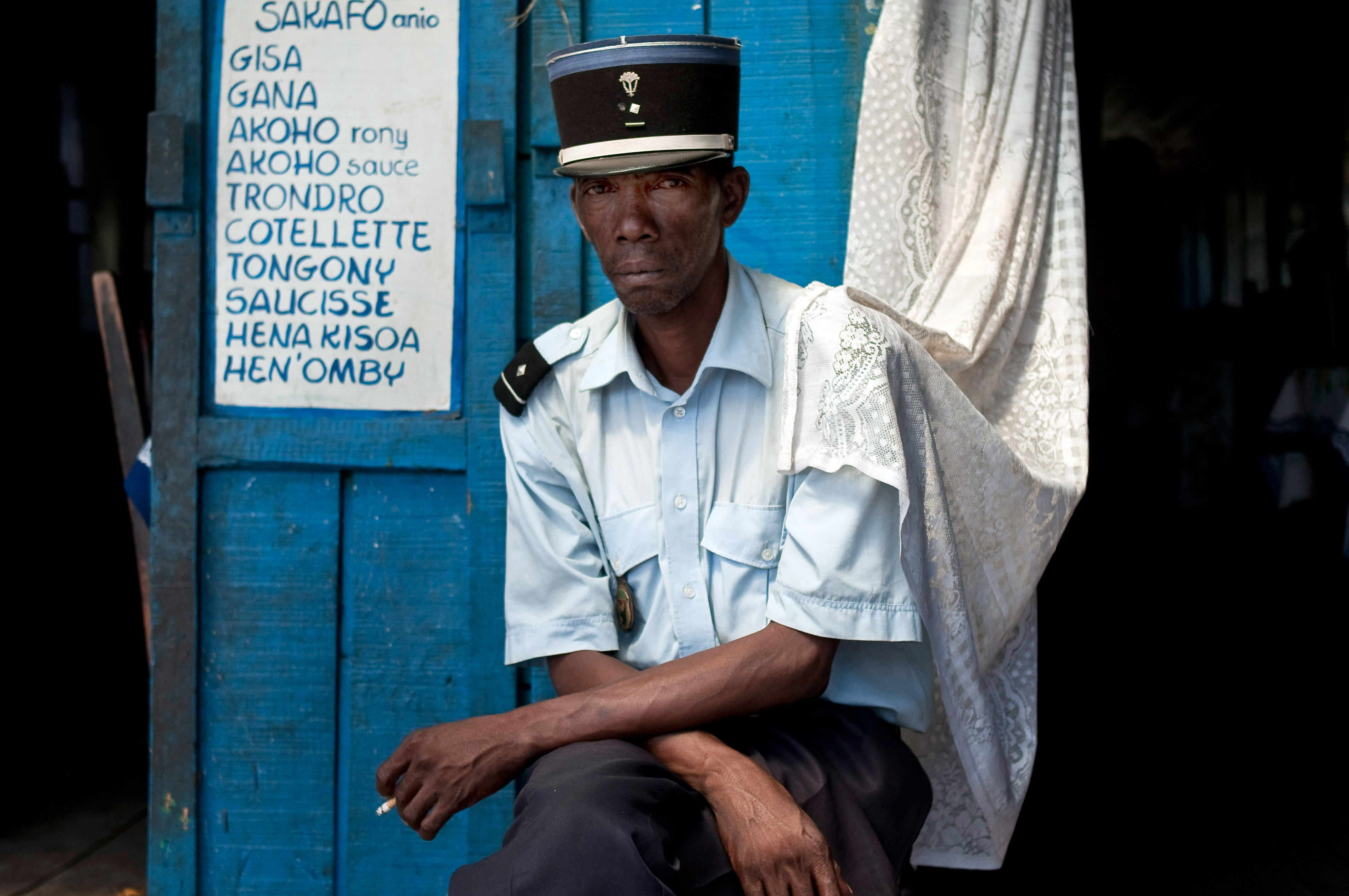Political situation Turbulent years and slow change
Policeman in Moramanga, Madagascar
Presidential and parliamentary elections were held with support from the United Nations. In 2018, former coup leader Andry Rajoelina was elected president in internationally recognised elections. During his term in office, Madagascar was hit severely by the global consequences of the COVID-19 pandemic and Russia's war of aggression against Ukraine. Even though only few of the reform and development plans which Rajoelina had announced prior to his election have been implemented successfully, he was re-elected for a second term in November 2023. The election turnout reached an all-time low, 46 per cent.
Government barely able to fulfil basic functions
The implementation of the development plans is hindered, for one thing, by the extremely low level of financial resources available in the government budget.
With a tax-to-GDP ratio of 10.2 per cent (2021), there is not enough revenue to finance urgently needed investments in the country's run-down infrastructure or in its education and health systems. In parts of the country, the state is unable to exercise its monopoly on force. In many areas, the government is not able to fulfil its basic functions vis-à-vis the people. Even though the ratio of government spending on education and health in the budget is above the regional average, absolute per capita expenditure in the two sectors is significantly below the average for sub-Saharan Africa.
The other problem that presents significant barriers to the country's development is deficits in the areas of governance and rule of law.
One factor that is acting as a particular impediment to development is widespread corruption. In 2022, Madagascar ranked 142nd out of 180 countries evaluated on the Corruption Perceptions Index (External link) of the non-governmental organisation Transparency International. A small political and economic elite reaps the profits from the country's wealth of natural resources and often stands in the way of fundamental reforms.
Even though its capacity is still relatively weak, civil society is becoming a more and more important player in Madagascar. So far, people have very few opportunities for critically monitoring government policies or for voicing their concerns in the political process. Generally, popular confidence in the state is low. In particular, the lack of prospects of a better future for young people (40 per cent of the people are below the age of 15) is causing discontent and presents a special challenge.
As at: 12/01/2024
